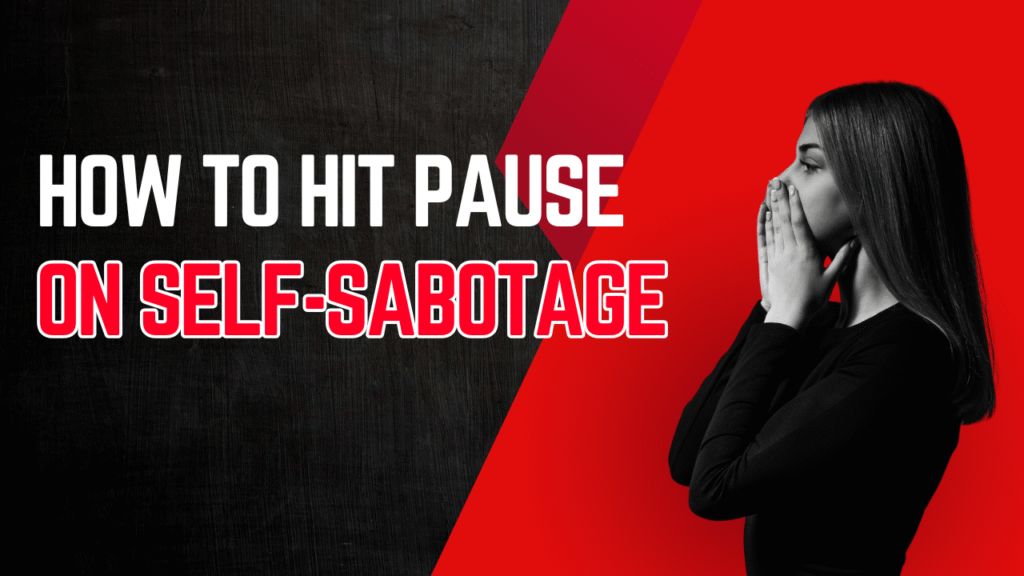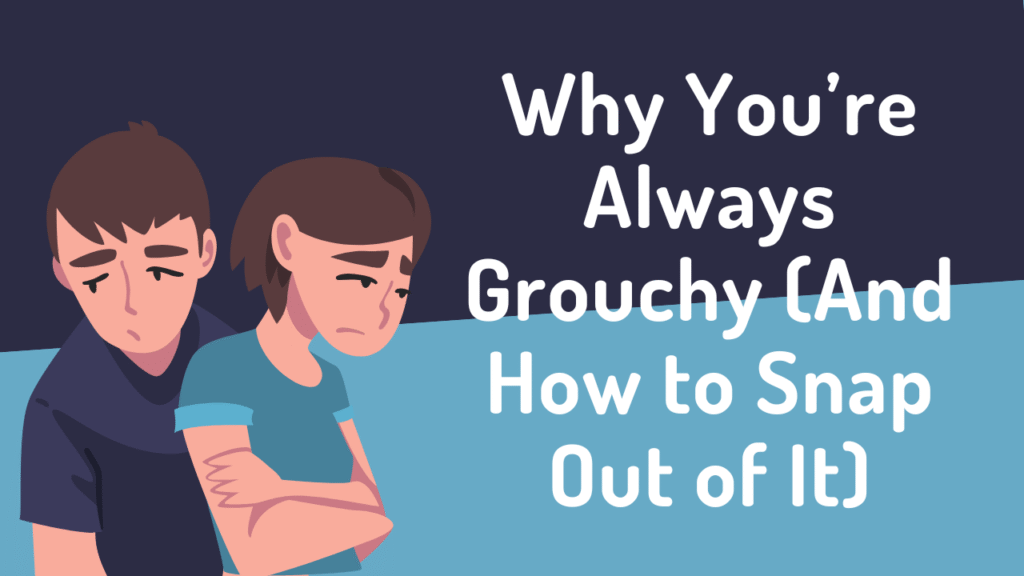Alright, let’s talk about self-sabotage.
Not the dramatic kind where you blow up your whole life in one big, fiery decision. I mean the quiet kind. The kind that slips in wearing your own voice and says things that sound perfectly reasonable.
“Take a break—you’ve earned it.”
“You’ll have more energy tomorrow.”
“This probably isn’t worth doing right now.”
It’s smooth. Subtle. And it works way too often. One minute you’re making progress, the next you’ve set down the thing you swore you’d stick with… and somehow it stays there.
Why We Do It
It’s not because you’re a lost cause. It’s not because you secretly hate yourself. It’s because your brain is built to avoid discomfort. Even when that discomfort is part of something you actually want.
Stability can feel suspicious when you’re used to chaos. Good things can feel dangerous if you’ve been burned before. So your brain plays it safe the only way it knows how—by pulling you back to familiar ground. Even if that familiar ground is a swamp.
The Pattern You Don’t See
Self-sabotage isn’t random. It’s patterned. And like any pattern, you can break it… if you catch it early enough.
But here’s the problem—most of us don’t notice until after the damage is done. You skip the workout. You ignore the email. You cancel the thing you were excited about. Then a week later, you’re wondering why you feel stuck again.
The trick is spotting the moment before you veer off course.
The Window
There’s always a window. It’s that split second between the urge and the action. You feel the pull to procrastinate. You hear the little “you’ll do it later” whisper. You reach for the phone instead of starting.
Right there—that’s your chance.
And instead of pushing forward into the usual habit, you hit pause. You stop mid-motion. No long debate. No pep talk. Just stop.
What Pausing Actually Does
Think of it like catching yourself mid-sentence when you realize you’re about to say something you’ll regret. You don’t have to rewire your entire personality—you just stop talking.
Pausing isn’t glamorous. It doesn’t feel like a win in the moment. You’ll think, “So what? I didn’t eat the cookie. Big deal.” But here’s the thing—the pause is the wedge.
Self-sabotage is a runaway train, and the pause is the brake. One tap won’t stop the whole thing. But enough taps, over time, and the speed drops. Eventually, the direction changes completely.
Tiny Choices, Big Difference
You don’t need to turn every pause into a heroic comeback. Sometimes, the best move is just the smallest possible different choice.
Planned to skip the workout? Go for five minutes.
About to binge-watch instead of working? Set a timer for ten minutes and start anyway.
Thinking about bailing halfway through because it “doesn’t matter”? Finish one more small piece.
You’re not chasing perfection—you’re protecting momentum. And momentum is fragile.
The Lies We Fall For
To get good at pausing, you’ve got to get good at catching the lies you tell yourself.
The “just this once” lie.
The “I’ll make up for it later” lie.
The “I’m not in the right headspace” lie.
They sound harmless, but they’re how the pattern stays alive. They sneak past your defenses because they feel true in the moment.
What Happens When You Pause Enough
At first, you’ll barely catch yourself in time. You’ll pause halfway into the old habit. But the more you practice, the earlier you spot it.
You’ll notice the urge before you’ve opened the fridge, typed the URL, or started the excuse. And eventually, you skip the sabotage entirely—not because you “fixed” yourself, but because you’ve trained yourself to interrupt the cycle before it starts.
When You Mess Up (Because You Will)
This isn’t about being perfect. You’re going to miss it sometimes. You’ll look back at the end of the day and think, “Yep, I sabotaged myself there.”
Fine. The difference between staying stuck and breaking free is how fast you recover. You don’t wait for Monday. You don’t wait for the “right moment.” You reset immediately.
Messing up once won’t kill your progress. Letting it snowball will.
The Quiet Shift
Something changes when you start pausing consistently. You stop feeling like life is something that just happens to you. You start trusting yourself more, because you’ve proven you can catch yourself before you run the same old play.
And here’s the kicker—it spills over. The discipline you build in one area starts showing up everywhere else. You follow through more. You procrastinate less. You keep your word, both to yourself and to other people.
The Real Point
Pausing isn’t about being perfect. It’s about breaking the automatic loop that’s been steering your life without your permission. It’s about remembering, in the middle of the moment, that you have a choice.
Because self-sabotage isn’t some unstoppable force. It’s just a habit. And habits can be interrupted.
So the next time you feel that familiar pull to step off the path you actually want to be on—don’t fight it with some massive burst of willpower, and don’t roll over for it either. Just stop. Even for a few seconds.
That pause is the doorway. Step through it often enough, and you won’t just stop sabotaging yourself—you’ll start actually trusting yourself again. And that changes everything.


